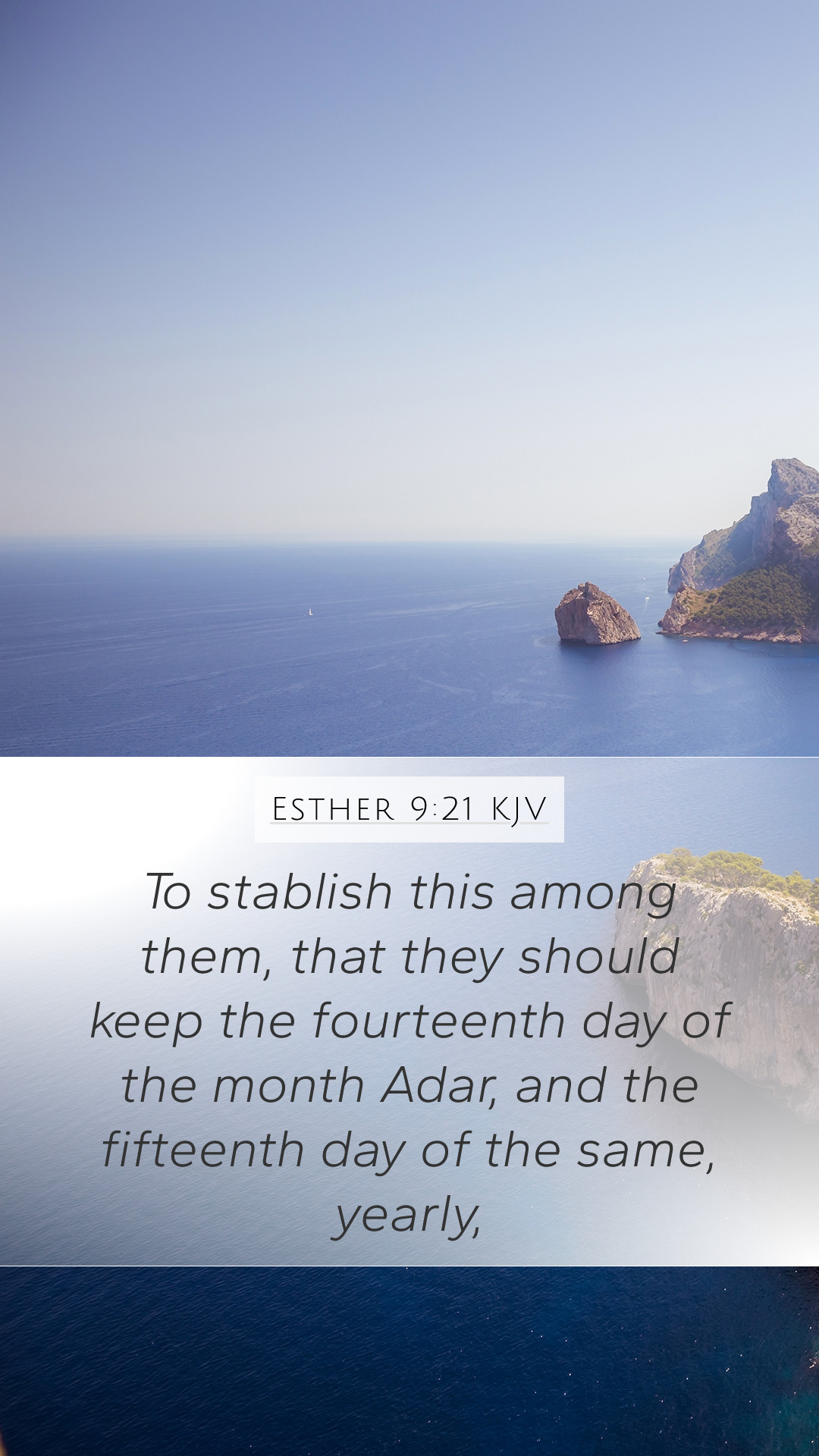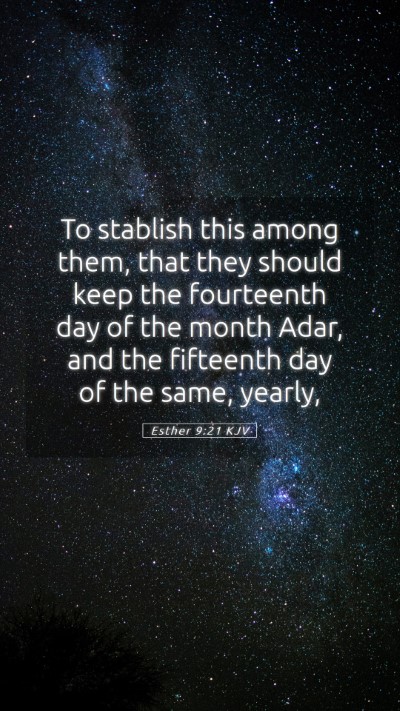Bible Verse Meaning: Esther 9:21
Esther 9:21 states: "To establish this among them, that they should keep the fourteenth day of the month Adar, and the fifteenth day of the same, yearly." This verse serves as a pivotal instruction in the narrative of the Book of Esther, focusing on the establishment of a feast to commemorate the deliverance of the Jewish people from imminent destruction. Below, we delve into various commentaries to unpack the deeper meanings of this scripture.
Summary of Verse Meaning
This verse emphasizes the importance of remembrance and celebration in the life of God's people. The Jews were instructed to commemorate their deliverance from Haman’s plot on these specific days—Adar 14 and 15. Through this annual observance, they are to reaffirm their identity and gratitude to God for His intervention. The institution of these feast days reflects a larger theme in Scripture about the significance of remembering God's saving acts.
Insights from Public Domain Commentaries
-
Matthew Henry Commentary
Matthew Henry points out that this declaration was made to ensure the celebration of Purim, which emphasizes both the joy of deliverance and the duty of remembrance. He notes that setting aside specific days for this purpose helps prevent the complacency that can easily befall the people when times are peaceful.
-
Albert Barnes Commentary
Albert Barnes highlights the communal aspect of this observance. By establishing a tradition that involves the whole people, it reinforces the shared history of the Jewish community and their collective thanksgiving for God's protection. Barnes also discusses how this practice elevates the understanding of God's providence in the history of Israel.
-
Adam Clarke Commentary
Adam Clarke views this directive as a means to strengthen the national identity of the Jewish people. By instituting these days of celebration, it cultivates a culture of remembrance that aligns with the Jewish faith and traditions. Clarke emphasizes that such observances play a crucial role in teaching future generations about their heritage and the acts of God on their behalf.
Understanding Scripture in Context
The context of Esther 9:21 lies in the broader narrative detailing the Jewish people's peril under Persian rule and their miraculous escape from extermination. This event culminates in a festival that not only celebrates their survival but also serves as a reminder of the reliance on divine providence in times of crisis. Such celebrations are pivotal in strengthening community ties and enhancing the covenant relationship with God.
Significance of the Feast of Purim
The establishment of Purim as a feast illustrates several key aspects of biblical celebration:
- Communal Remembrance: The festival acts as a collective acknowledgment of God’s deliverance.
- Historical Reflection: It invites reflection on the past, ensuring that the story of Esther and the Jews is passed on.
- Strengthening Identity: Such observances help individuals and communities recognize their unique relationship with God.
Application of Esther 9:21 to Daily Life
For modern readers, Esther 9:21 calls for an examination of how we can remember and celebrate God's faithfulness in our lives. This might manifest in personal rituals, family gatherings, or community events that highlight important life experiences and divine interventions. Moreover, the directive encourages believers to cultivate gratitude and share their testimonies with others, thereby fostering a deeper community connection.
Related Bible Cross References
- Exodus 12:14: Instituting the Passover as a perpetual festival of remembrance.
- Deuteronomy 16:3: Remembering the deliverance from Egypt during the Feast of Unleavened Bread.
- Psalms 78:4: The importance of telling the next generation about God’s deeds.
Conclusion
Understanding Esther 9:21 not only enriches your Bible verse meanings but serves as a lens through which we can view the significance of remembrance, identity, and community in our lives as believers. As you reflect on this verse, consider how these themes apply to your daily practices, and let them guide your Bible study insights.
For deeper study, explore this verse further in group settings or through online Bible study tools, which can help you navigate the historical context and personal applications of such scriptures.


